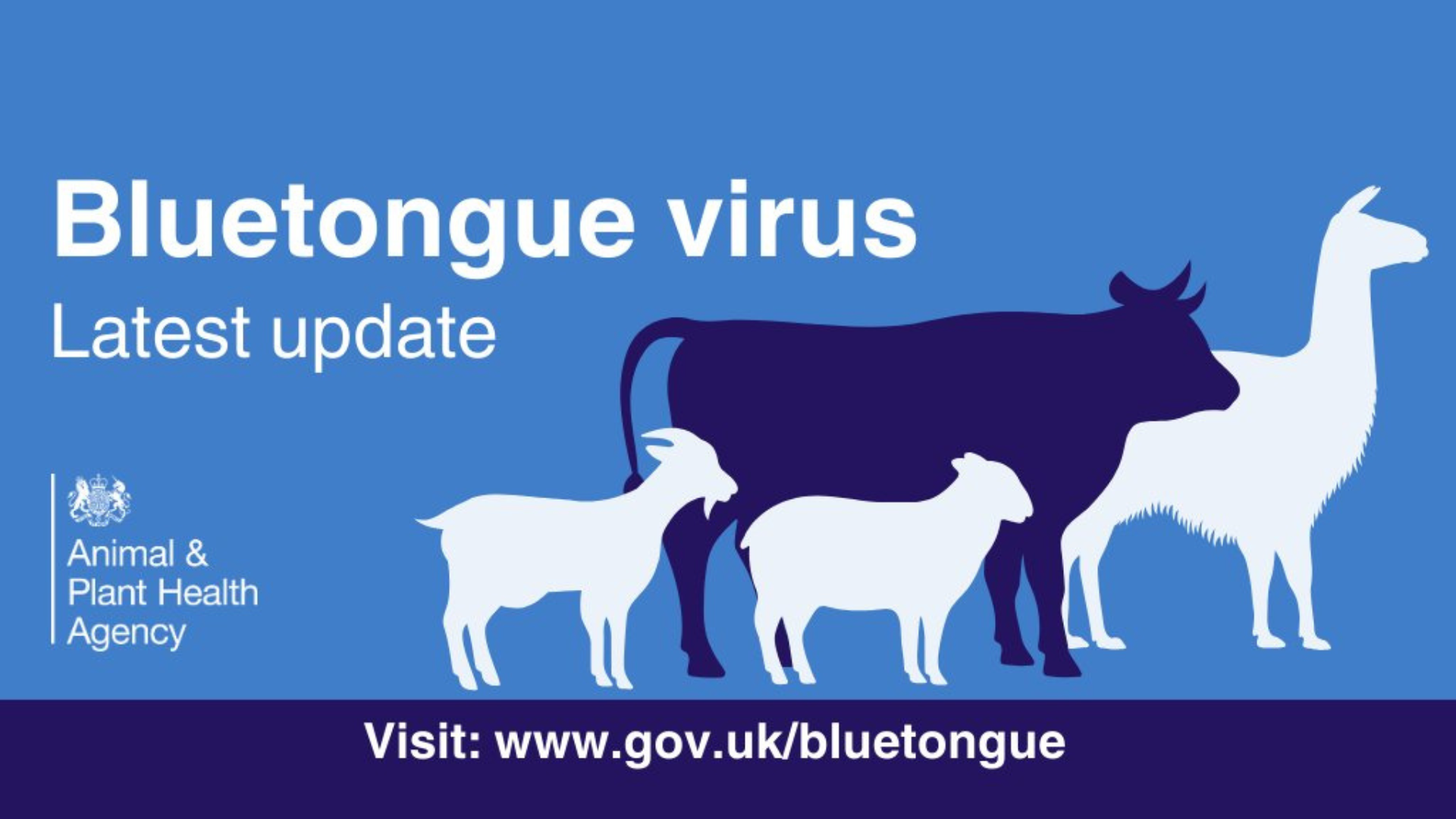
A temporary control zone is in place across all of Lincolnshire after cases of bluetongue have been identified in and around the county.
What is bluetongue?
Bluetongue is a disease which affects cattle, sheep, goats, deer, alpacas and llamas (ruminants and camelids). It is caused by a virus that is spread by biting midges.
It does not affect people or food safety. Meat and milk are safe to eat and drink.
Latest bluetongue situation in the UK
Bluetongue cases map
View the latest temporary control zones:
If you are in a control zone and keep susceptible species (ruminants and camelids), you must keep a close watch for, and report, any suspected clinical signs of bluetongue disease in your animals.
To move animals in a disease control zone, you may need a licence. More information is available on the bluetongue movement licences page on the Government's website.
Reporting bluetongue
If you suspect bluetongue, you must report it immediately by calling the Animal and Plant Health Authority on 03000 200 301.
Bluetongue is a notifiable disease. This means if you do not report it, you’re breaking the law.
What to look out for
Bluetongue can cause fever, crusting and ulcers around muzzle area, swollen head, salivating and lameness. In the most severe cases, it can cause abortions, malformations, and death in animals. Clinical signs are not always present despite infection.
View a range of helpful videos from APHA.
Need help?
Call the Lincolnshire Rural Support Network on 0800 138 1710, 8am to 8pm, every day. Or visit www.lrsn.co.uk anytime.
